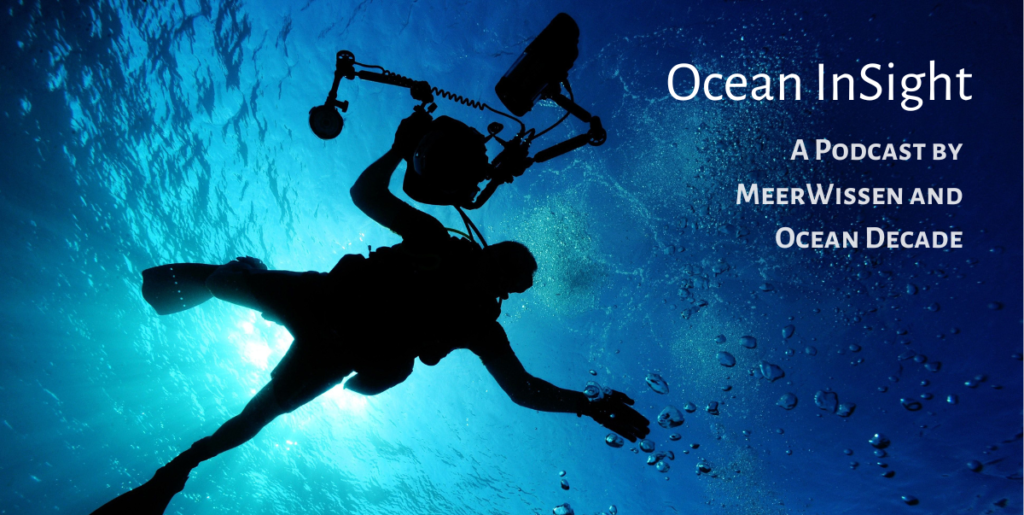Meet our Early Career Ocean Professionals: Carina Martens (Germany)
Carina Martens is from Hamburg, Germany, but currently based in Cologne. She works for the GIZ (Gesellschaft für Internationale Zusammenarbeit / German Agency for Development Cooperation), in the Environment-Biodiversity-Oceans department, which acts as an advisor and facilitator for all technical cooperations for the BMZ (Germany Ministry for Development Cooperation)
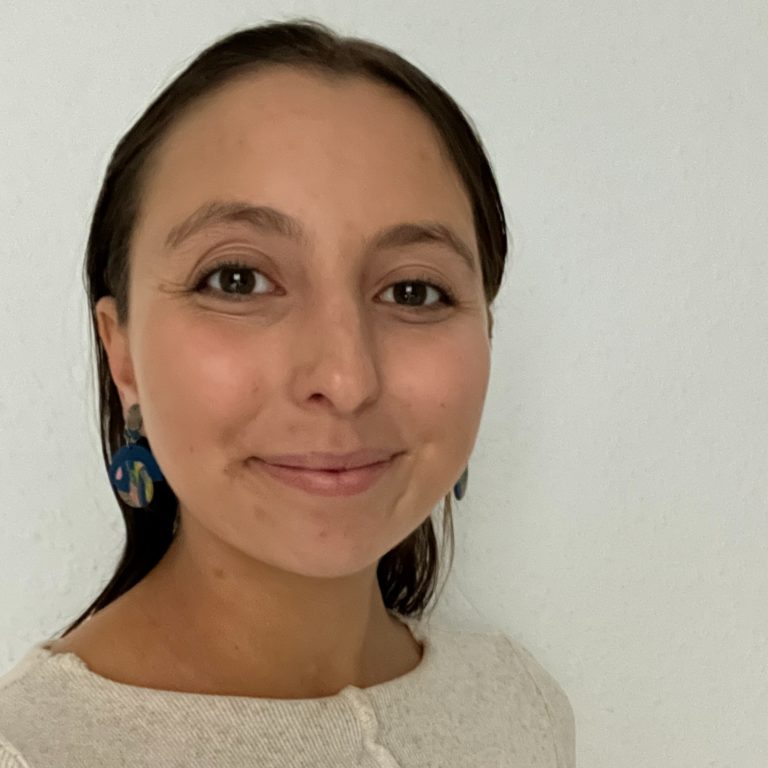
1. Hi Carina, can you tell us a bit more about your work with GIZ (Gesellschaft für Internationale Zusammenarbeit / German Agency for Development Cooperation?
I am part of the Ocean team, in which we are responsible for all related topics from marine biodiversity, sustainable blue economy, MPAs to support coastal IP&LC and many more.
From my first day at GIZ, the MeerWissen initiative, a marine-focused German African scientific knowledge cooperation supported by the UN Ocean Decade, caught my interest. It seeks to provide policymakers with the scientific information they need to make profound decisions for the effective management and conservation of Africa’s oceans and coasts. Our team thereby acts as the secretariat for 16 projects in 12 African countries, whereby every project addresses a unique issue through a Co-Design approach. I especially encourage the emphasis on stakeholder engagement and co-management with local coastal communities and Small Scale Fishers as well as young academics and professionals as important stakeholders in the project and beyond. We even created a podcast in which we especially want to create a space for the voices of early-career ocean professionals and local communities.
2. Tell us about where you grew up and what your experience taught you about the Ocean – has it shaped your career path?
My father’s side of the family grew up and still has a deep connection to a tiny island in the North Sea called “Hallig-Hooge”. Therefore, the Ocean and coasts were always an impactful part of my childhood and are still today. Early on, my family and I did “Wadden Hikes” and found various amazing creatures normally hidden in the seabed.
In my time in Australia, I discovered my passion for free diving and was fortunate enough to still see the beauty of the Great Barrier Reef but also the parts where excessive tourism had already damaged it.
The first time my career path crossed my passion for the Ocean was during my volunteer work in a small village on the coast of Mexico where I supported researchers in their study of sea turtles and their hatching behaviour over the years. Before this, I had never felt that my work (in marketing) was “important” or “making a difference”. But every night getting up at 2 am cruising the beach on our search for turtles, that’s when I felt like I was doing something meaningful, even if it was just a tiny piece of the puzzle.
This experience was the reason I changed my career path from the private sector to non-governmental organizations and started my position at Doctors without Borders. However, since I had no prior experience in this sector, I started in the fundraising department and was unable to step into the operations unit right away. I then decided to pursue my master’s degree in this field to one day be able to work back in the field, and I started my MSc in “International Development and Management” at Lund University. During this time, I used my field semester to work for a small pangolin NGO (PCRF) in the Namibian desert researching pangolins who were victims of illegal wildlife trade. This also became the topic of my master’s thesis. However, the Ocean was not only part of various papers I wrote during my studies but was also in the back of my mind for my future career. This is why I applied for my internship in the Oceans Team at GIZ and… here we are!
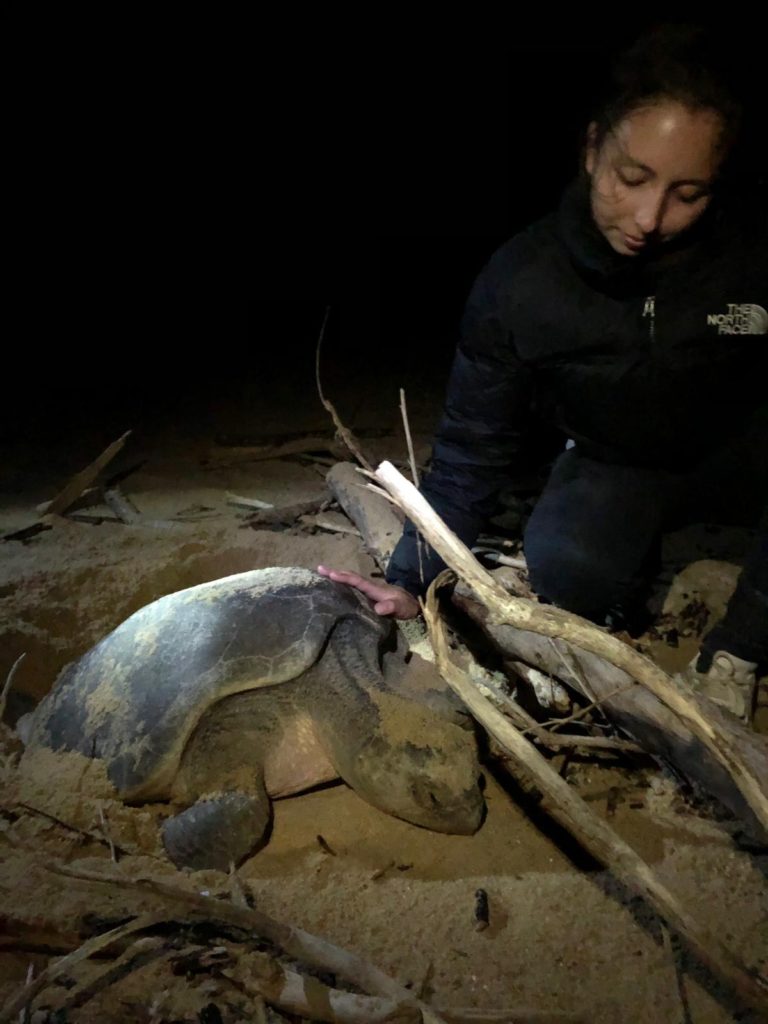
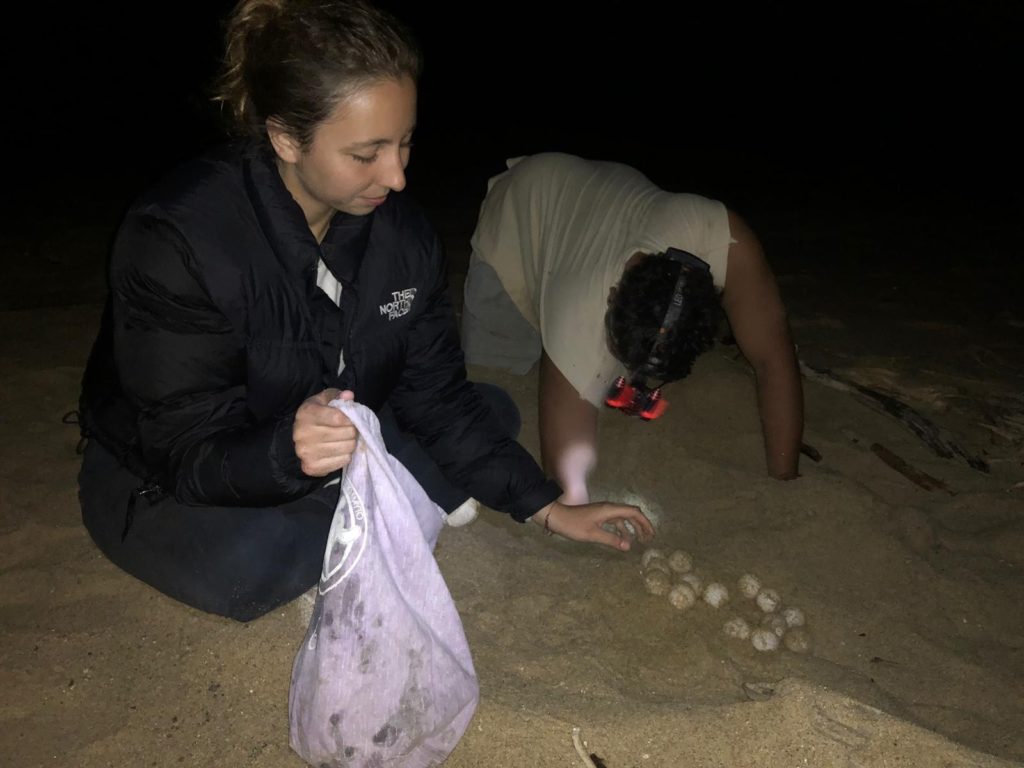
Photos of Carina volunteering with a turtle project in Mexico.
3. Tell us about some of your recent achievements/highlights/successes or alternatively, what are you struggling with, or what challenges/barriers are you facing?
I think the biggest challenge, not only for me but also for my fellow graduates from my master’s degree, is the entrance into the professional world of development – humanitarian as well as conservation. Unpaid internships and volunteer work are everywhere, but at some point, you must sustain yourself and earn at least a tiny salary. Most paid jobs require 5+ years of professional experience, and our question is: but how are we supposed to obtain this in the first place?
Therefore, I am very grateful for my paid internship at GIZ where I am learning more than I could have imagined. My team tries to give me insights into all topics and tasks possible and has taught me many new skills that will be very helpful in my future career. Working with my team of passionate ocean professionals and supporting them in their important roles is certainly one of my highlights this year. However, my internship is ending in January, and still, junior positions in the ocean sector are still hard to find, but let’s see what is there to come.
My most recent highlight was of course being asked for this interview as I think ECOP is a great chance for young people’s voices to be heard, and I am very grateful for this opportunity.
4. What do you envision for the future with regards to the Ocean and how do you think we can achieve the science we need for the Ocean we want?
I think the goals we are setting in today’s world are already great. The UN Ocean Decade, the Global Biodiversity Framework, and the SDGs – all of them are addressing the most pressing issues and can act as important guidance for all ocean professionals. However, I think the steps to achieve those goals are often more complex on the ground than you expect them to be from a policy perspective. Often countries strife to achieve a certain goal (such as 30×30) even if it is just on paper than ensuring effective and long-term impacts on the ground. Effective conservation requires capacity, funding, and patience, and some successes are less sexy to communicate in their politics.
In my opinion, right based and co-management approaches are the key to facilitating sustainable change, such as ICCAs. Ocean conservation must not only nature but also the people who live there and have lived there for centuries, to whom the Ocean is their home, their livelihood, and their main source of nutrition and mostly IP&LC are not the ones causing the damage but rather foreign fishing vessels and companies as well as tourists. Of course, it seems easier to impose a government controlled MPA without further discussions and managing conflicting expectations, but it will not be sustainable in the long term, and we need real impact, not just a number on paper. There is also a major funding gap for SDG14. Ocean finance is a complex topic, and conservation success in the Ocean is often less traceable than on land. It is easier to show deserting terrestrial landscapes than the healthy state of the Ocean. But it is our most important ecosystem, it can be our greatest weapon against climate change, and it is about time we treat it as such, and that requires money.
5. How can people support you and your work?
Employ me! (laughs). No, but in all honesty, there is a lot that you can do for the Ocean. Do you have the resources to fund an ocean NGO? Please do so but inform yourself what they are doing and how transparent they are about how they use their funds. If you have some spare time, participate in a local ocean clean- up, or start one yourself. Or else, there are great companies which are i.e., creating bracelets out of ghost nets, wouldn’t that be a great Christmas present? Lastly, something that does not require much time or money: participate in elections even if you feel like it does not change much – every vote counts! Write an email to your local political representative and tell them what you expect them to do for our environment, sign a petition, be loud on social media, and, if you have children, show them the importance of a healthy (ocean) environment from an early stage (Wadden Hikes are really fun!). We can all be a part of the ocean community and we are growing by the minute!
